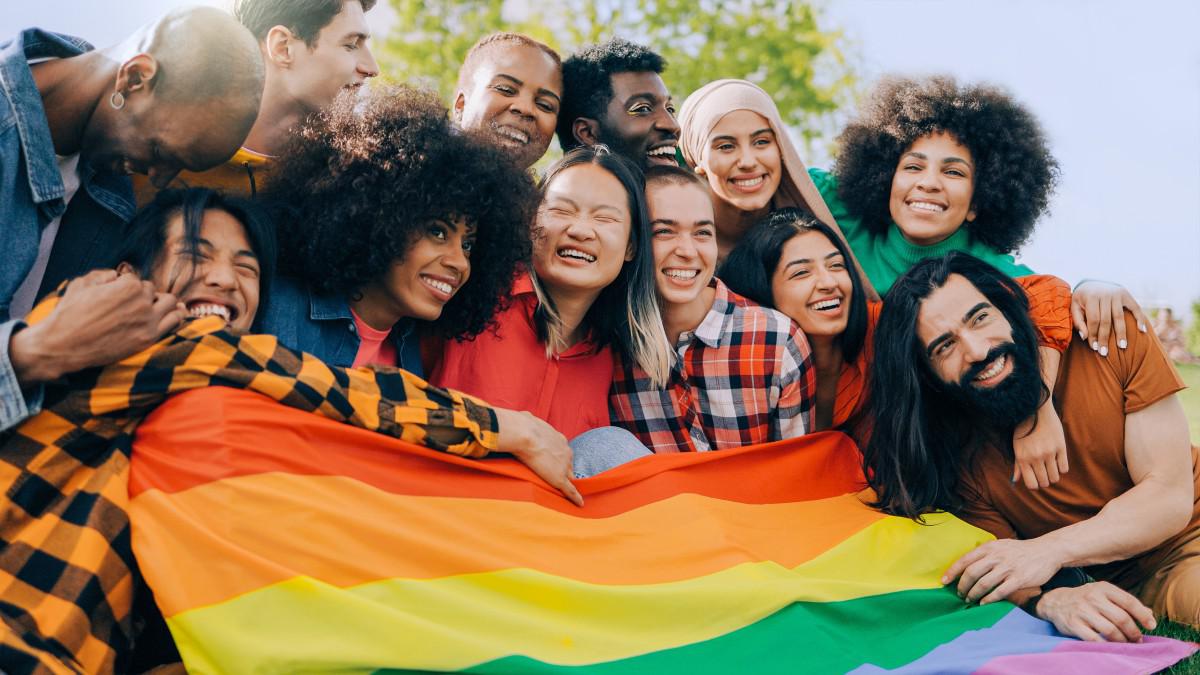Navigating Challenges and Promoting Well-being: The Role of Social Workers in the LGBTQIA+ Community

In every community, individuals share various experiences, challenges, and stories that showcase resilience. However, the LGBTQIA+ community faces unique challenges, including discrimination, marginalization, and disparities in access to healthcare and social services. In the face of these obstacles, social workers play a crucial role in providing support, advocacy, and culturally competent care to promote the well-being of LGBTQIA+ individuals. This article explores the invaluable role of LGBTQ social work in addressing the specific needs of the LGBTQIA+ community and advocating for equality.
Unique Challenges Faced by the LGBTQIA+ Community
Social workers are trained to understand and address the complex challenges faced by the LGBTQIA+ community. From navigating systemic discrimination to coping with mental health issues arising from societal stigma, LGBTQ social work provides holistic support to individuals of diverse sexual orientations and gender identities. By fostering a safe and inclusive environment, social workers create spaces where LGBTQIA+ individuals feel empowered to seek assistance without fear of judgment or discrimination. Among the many challenges confronting members of the LGBTQIA+ community, some distinctive obstacles include:
- Discrimination and Stigmatization: The LGBTQIA+ community encounters prejudice and discrimination across various aspects of life, from employment to healthcare.
- Family Rejection: After coming out, many face rejection or hostility from family members, leading to strained relationships and feelings of isolation. Research shows that family and social acceptance of sexual orientation and gender identity affects the mental health and personal safety of LGBT+ individuals.
- Mental Health Issues: Elevated risk for mental health concerns like depression and anxiety is common among LGBTQIA+ individuals, stemming from stress associated with discrimination and stigma. LGBTQ+ teens are six times more likely to experience symptoms of depression than non-LGBTQ+ identifying teens.
- Bullying and Harassment: Disproportionately targeted for bullying in educational settings, LGBTQIA+ youth often experience academic and emotional setbacks as a result. Most LGBTQ+ individuals report experiencing threats or non-sexual harassment (57 percent), sexual harassment (51 percent), or violence (51 percent) due to their sexuality or gender identity.
- Legal and Policy Barriers: Despite strides in LGBTQIA+ rights, discriminatory laws and lack of legal recognition for same-sex relationships persist, limiting access to rights and protections.
- Healthcare Disparities: Limited access to culturally competent healthcare, compounded by discrimination from providers, poses significant obstacles for LGBTQIA+ individuals seeking medical services. In fact, nearly 8% of LGBTQ+ individuals and 27% of transgender individuals report being denied needed healthcare.
- Housing Insecurity: Particularly prevalent among transgender and gender-nonconforming individuals, homelessness and housing discrimination result from factors like family rejection and employment bias. 46% percent of homeless LGBTQIA+ youth fled their homes after being disowned by their families due to their sexual orientation or gender identity, while 43% were forcibly evicted by their parents.
- Violence and Hate Crimes: Heightened vulnerability to violence, particularly among transgender and gender-nonconforming individuals, underscores the persistent threat of hate crimes based on sexual orientation or gender identity. The Human Rights Campaign (HRC), the largest LGBTQ+ civil rights organization in the US, sounded the alarm as the FBI released its annual crime report for 2022. The report revealed a significant rise in anti-LGBTQ+ hate crimes, with a 13.8% increase in reports based on sexual orientation and a shocking 32.9% jump in reported hate crimes based on gender identity.
- Intersectional Discrimination: Marginalized LGBTQIA+ individuals, such as people of color or those with disabilities, face compounded discrimination due to multiple aspects of their identity.
LGBTQ+ Social Work Areas of Practice
Social workers are at the forefront of advocating for policies and legislation that promote equality and protect the rights of LGBTQIA+ individuals. Whether lobbying for inclusive healthcare policies or fighting against discriminatory practices in child welfare systems, social workers use their platform to amplify the voices of marginalized communities and effect positive change on a systemic level. Those working in LGBTQ social work can specialize in various practice areas to better serve the LGBTQIA+ community's diverse needs.
Mental Health Counseling
According to Mental Health America (MHA), 4.5% of the U.S. population identifies as being lesbian, gay, or bisexual and of those, over 39% reported having a mental illness in the past year. In mental health counseling, social workers provide therapy and support tailored to the unique experiences and challenges faced by LGBTQIA+ individuals.
Child Welfare
In the last year, 41% of LGBTQ+ youth contemplated suicide, with transgender, nonbinary, and/or people of color experiencing even higher rates. Additionally, 56% of LGBTQ+ youth seeking mental health support were unable to access it. In child welfare, social workers advocate for LGBTQ+ youth in foster care systems and ensure they receive affirming and supportive care.
Community Outreach
In mental health care, the MHA finds that stigma, lack of cultural sensitivity, and unconscious and conscious hesitancy to address sexuality may hamper the effectiveness of care.
Therefore, social workers who work to change attitudes towards LGBTQ+ communities can have a significant impact. Through community outreach initiatives, social workers raise awareness, provide education, and connect LGBTQIA+ individuals with vital resources and support networks.
LGBTQ Social Work in History: Jane Addams
To truly understand social workers' impact on the LGBTQIA+ community, it’s helpful to turn to real-world examples of change-makers throughout history. One notable example is Jane Addams, a pioneering social worker and activist who advocated for LGBTQ rights in the late 19th and early 20th centuries. Addams co-founded Hull House in Chicago, one of the first settlement houses in the United States, which provided social and educational services to immigrants and the poor.
Addams was a vocal supporter of LGBTQ+ individuals at a time when homosexuality was highly stigmatized. She believed in the importance of acceptance and equality for all people, regardless of sexual orientation or gender identity. Addams' advocacy extended beyond her work at Hull House; she was also involved in various social reform movements, including women's suffrage and pacifism.
Through her activism and commitment to social justice, Jane Addams paved the way for greater acceptance and visibility of LGBTQ+ individuals in society. Her legacy continues to inspire social workers and activists today to advocate for LGBTQ+ rights and create a more inclusive and equitable world.
How an MSW Program Can Create Impact in LGBTQ Social Work
An online Master of Social Work (MSW) program equips aspiring social workers with the knowledge, skills, and cultural competency necessary to serve the LGBTQIA+ community effectively. Specialized courses, such as Keuka College's Clinical Social Work Practice LGBTQ electives, provide students with in-depth knowledge and understanding of LGBTQIA+ issues, preparing them to deliver affirming and culturally competent care. With a focus on promoting social justice and equality, an online Master of Social Work empowers graduates to make a meaningful difference in the lives of LGBTQIA+ individuals and communities.
Tracy Leet, an adjunct professor at Keuka College, developed the LGBTQIA Clinical Social Work Practice Course to address the need for competent care in the community:
“Through the work, [the students] experience advocacy firsthand. The course [addresses] the unique and adverse experiences of the LGBTQIA population. The experiential learning opportunities afford them the perspective they can apply directly to clinical practice and help them understand the differences between being affirming and competent with the LGBTQIA population.”

Keuka College is Empowering Social Workers to Champion LGBTQIA+ Rights
As we continue to strive for equality and acceptance, social workers' indispensable role in supporting the LGBTQIA+ community remains. Through advocacy, education, and compassionate care, social workers play a vital role in promoting the well-being and empowerment of LGBTQIA+ individuals.
Keuka College’s online Master of Social Work programs offer a unique opportunity to develop the necessary skills and expertise to address the diverse needs of the LGBTQIA+ community. With both traditional and advanced tracks available, our program prepares students to become competent and compassionate social workers ready to make a positive impact. Whether you hold a bachelor's degree in social work or another field, our program offers specialized coursework and field placement opportunities to help you achieve your goals in the field of LGBTQ social work.
Discover how Keuka College’s online Master of Social Work programs can help you make a difference in the lives of others.
